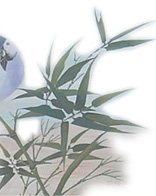|
 Listen to Shirley Sing the Poem in English Jan 31, 2010 Listen to Shirley Sing the Poem in English Jan 31, 2010
 Listen to Shirley Sing the Poem in Chinese Jan 31, 2010 Listen to Shirley Sing the Poem in Chinese Jan 31, 2010
 Follow Shirley to Read the Poem & Chinese Characters Follow Shirley to Read the Poem & Chinese Characters
 Learn the Meaning of the Poem With Shirley Together Learn the Meaning of the Poem With Shirley Together
 See Shirley Created Picture for the Poem Jan 30, 2010 See Shirley Created Picture for the Poem Jan 30, 2010
 See Shirley Written Calligraphy for the Poem Jan 30, 2010 See Shirley Written Calligraphy for the Poem Jan 30, 2010
 Have you been to any grassland or any ancient plain? Do you appreciate the strong vitality of the little grass? I do. Have you been to any grassland or any ancient plain? Do you appreciate the strong vitality of the little grass? I do.
I really admire the little grassвҖҷ strong life power. No matter how cold and how hard winter it has just experienced, as soon as the spring wind blows over, it will quickly grow up and dress the land a beautiful green clothes...
In the thousands and thousands Chinese poems that sings the little grass, the most famous line is from the poem Fu Do Guyuan Cao Songbie ? Sent-off on the Ancient Plain by Tang Dynasty(618-907) Poet Bai Jiuyi's "Ye Huo Shao Bu Jin, Chun Feng Chui You Sheng -- The wildfire cannot burn the grass out, it will always re-grow up in the spring breeze". Chinese people use this line in our daily language to compare to something beautiful and right cannot be pressured down always, even though in the worst environment. As soon as the situation is getting better, it will re-grow at once. So, many art works -- movies, articles have chosen it as their titles. And the first part of the poem includes this line has been chosen into the elementary school's textbook, almost all of the Children's Poem Books.
This poem has 8 lines, the first 4 lines are popular and usually people chose the first 4 lines to recite. Me do.
I had written a piece of music to match it and translated it into English and sang Jun, 2006; corrected them in Oct, 2007. This weekend, Jan 30 - 31, 2010, I created a new painting to match my music and singing, re-corrected the translation, music and explanation, also, first time, I sang it in English.
Some friends told me that they could not read Chinese on their computers, so, I have also written calligraphy for this poem and hope it will make you feel convenient when you learn it.
I really hope that my effort and exploration will be some of help with you to learn Chinese culture and language.
Below are the other poems that I have introduced by the same poet. You can review them by the links:
Shirley Created Music for Chinese Classical Poem --0072: Mu Jiang Yin --Singing by a River at Dusk
Chinese Classical Poem 0075 & Shirley Created Music-0065: Dali Si Taohua -- Peachblossoms of Dali Temple
Chinese Classical Poem & Shirley Sung It as an Art Song -- 033: Hua Fei Hua -- A Flower Is In The Fog
MAIN MEANING OF THE POEM
Luxuriant grass on the (ancient) plain,
one year once grows and withers.
Wildfire cannot burn it out,
(it) regrows in the spring breeze.
CHINESE CHARACTERS AND PRONUNCIATION
You are welcome to clink any Chinese Character to open the New Character Board and to see the new Characters and sentences' Chinese pinyin, meaning, pronunciation and follow me to read them in Chinese
иөӢеҫ—еҸӨеҺҹиҚүйҖҒеҲ« пјҲ 第дёҖйғЁеҲҶ -- The first part of the peomпјү
зҷҪеұ…жҳ“ ( е”җ )
зҰ»зҰ»еҺҹдёҠиҚү,
дёҖеІҒдёҖжһҜиҚЈгҖӮ
йҮҺзҒ«зғ§дёҚе°ҪпјҢ
жҳҘйЈҺеҗ№еҸҲз”ҹгҖӮ
 If you have any questions, comments and suggestions, please write to shirley@ebridge.cn , or shirleyz004@yahoo.com, You are welcome. If you have any questions, comments and suggestions, please write to shirley@ebridge.cn , or shirleyz004@yahoo.com, You are welcome.
Shirley Zhang
Written, Edited and Recorded First Time on Jun 10,2006;
Re-Written, Translated, Edited and Re-recorded on Sun, Oct 7, 2007/Sun Jan 31, 2010
|

